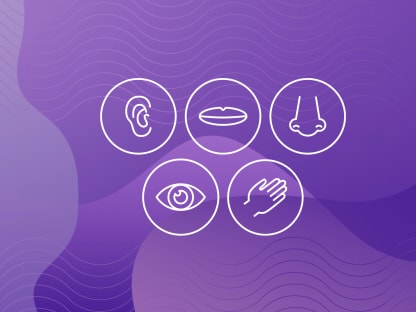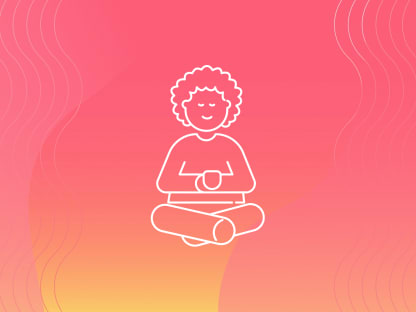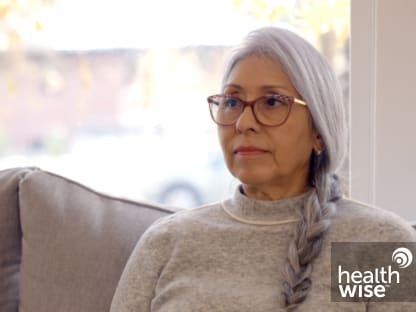Condition Basics
What are sexual problems?
A sexual problem is something that keeps sex from being satisfying or positive. Most people have symptoms of a sexual problem at one time or another. For some, the symptoms are ongoing. But your symptoms are only a sexual problem if they bother you or cause problems in your relationship.
There is no "normal" level of sexual response. It's different for everyone. You may also find that what's normal at one stage of your life changes at another stage. For example, it's common for an exhausted parent of a baby to have little interest in sex. And it's common for people to have lower sex drives as they age.
What causes them?
When there's a problem in either the emotional or physical part of your life, you can have sexual problems. Things like stress, anxiety, and depression can be a cause. So can relationship problems. Other causes include an injury or disease, aging, and taking certain medicines. But sometimes a cause isn't found.
What are the symptoms of female sexual problems?
Symptoms of sexual problems can include not being interested in sex or having trouble getting sexually excited or reaching orgasm. Sex may also be painful. But symptoms are problems only if they bother you or cause problems in your relationship with a partner.
How are they diagnosed?
Your doctor will ask questions about your past health problems and the medicines you take. You'll be asked about your sexual history and for details about your sexual problem. Your doctor may also do a physical exam and order tests.
How are female sexual problems treated?
Treatment for a sexual problem depends on the cause. It may include treating a health problem. For example, you may take hormones or change medicines that cause sexual problems. You may also get a counseling-based therapy. These include counseling for you and your partner, psychological therapy, and sex therapy.
Health Tools
Health Tools help you make wise health decisions or take action to improve your health.
Cause
Your sexuality is a mixture of mental, emotional, and physical signals. A problem in one area can grow to involve other areas. Sometimes a cause isn't found.
Some common causes include:
- Mental and emotional causes.
These include stress, anxiety, and depression. Other causes include relationship problems, fear, and a history of sexual or physical abuse. Being unhappy about your body can also be a cause.
- Physical causes.
These include hormone problems, pain from an injury, and other problems. Certain conditions such as diabetes or arthritis can also cause sexual problems.
During sexual arousal, blood normally swells areas of the vulva. If those areas aren't stimulated enough, you may not feel as much sexual pleasure.
- Aging.
This can cause changes in the vagina, such as dryness.
As you age, your sexual desire may decrease.
- Medicines.
Some medicines may lower sexual desire and arousal. These include certain medicines for depression, anxiety, and seizures.
Learn more
Prevention
Being sexually active (alone or with a partner) helps keep your vagina healthy. You can take the following steps to help prevent sexual problems.
- Look after your overall health. This includes both your physical health and your emotional health.
- Talk regularly to your partner about your needs and desires.
- Get familiar with your own patterns and methods of sexual arousal. One way to do this is through masturbation.
- Understand that many people don't always have orgasms during intercourse. Mutual pleasure can be a satisfying way to have sexual intimacy.
- Use plenty of lubrication. This can help you avoid vaginal dryness. That's the most common cause of painful sex.
- Enjoy being tender and close with your partner. And don't always expect great sexual performance.
Learn more
Symptoms
Symptoms of sexual problems can include:
- Less desire. You may have fewer sexual fantasies or thoughts. You may not want to have sex.
- Less arousal. You may notice that you're not interested when a partner makes sexual suggestions. You may not be able to feel or maintain sexual excitement.
- Being unable to reach orgasm.
- Pain during sex.
These symptoms are problems only if they bother you or cause problems in your relationship with a partner.
What Happens
Most people have symptoms of a sexual problem at times. But sexual response is different for everyone. And what's normal at one stage of your life may change at another stage. It's common to have a lower sex drive as you age. But many causes of sexual problems can be treated.
Learn more
When to Call a Doctor
Call a doctor now if you have sudden, severe pelvic pain.
Call your doctor for an appointment if:
- You feel pain or discomfort in your vaginal area. You may have a vaginal infection or a sexually transmitted infection.
- You have pain with sex or other sexual problems.
Watchful waiting
Watchful waiting is a wait-and-see approach. If you improve on your own, you won't need treatment. If you don't improve, you and your doctor will decide what to do next.
During watchful waiting, you might try home treatment, such as lubrication and exercises to stimulate sexual desire.
Maintaining honest and frequent communications with your doctor will help you decide if you need medical treatment.
Exams and Tests
Your doctor will work with you to identify your symptoms and may:
- Ask questions about your past health problems and the medicines you take.
- Ask questions about your sexual history.
- Do a physical exam, in some cases. This may include a pelvic exam if you're having pain during sex.
- Order tests, if needed. For example, blood tests can check hormone levels and thyroid function.
Learn more
Treatment Overview
Treatment will depend on the cause and the type of sexual problem you're having. Treatment may include:
- Treating any physical causes. This may include:
- Using hormones, such as estrogen.
- Taking steps to relieve pain or vaginal dryness.
- Taking medicines.
- Changing medicines that may cause sexual problems.
- Doing pelvic floor physical therapy.
- Using counseling-based therapies. They can help you learn how to talk openly with your partner. You may also learn more about your body, your sexual signals and receptors, and changes in sexuality as you get older. Therapies may include:
- Getting counseling for you and your partner.
- Getting psychological therapy. This often involves cognitive-behavioral therapy.
- Using sex therapy.
It's important to feel comfortable talking with your doctor. What works for one person may not work for another. So the more you can tell your doctor, the more the doctor will be able to help you.
Learn more
Self-Care
You can try a number of things that may help your sexual problems. These include:
- Foreplay and relaxation.
You may be able to increase your sexual desire and arousal with:
- Masturbation. This may be done with the aid of a vibrator, with your partner, or both.
- Sensual massage and other activities that create pleasure without sexual intercourse.
- Fantasies, music, or erotic videos or books.
- Reducing anxieties before sex. For example, you can try breathing exercises.
- Working with your partner.
For example:
- Try different sex positions.
- Change your setting and routine.
- Talk openly about sex. Discuss each person's needs. What do you want to do differently together?
- Vaginal lubricants.
Lack of lubrication in the vagina is the most common cause of pain with sex. Products that may help include Astroglide and K-Y Jelly.
- Exercises for pelvic muscles.
Tightness or spasms in pelvic muscles can make pain with sex worse. Certain exercises can help reduce pain by helping you learn how to control and relax your pelvic muscles.
Learn more
Watch
Medicines
Medicines may be used to treat certain conditions that contribute to sexual problems. These medicines include:
- Lidocaine ointment or ospemifene (Osphena). They may be used for pain that occurs during sex.
- Estrogen, if you are past menopause. It can help with dryness, irritation, and thinning of vaginal tissue (atrophy).
- Flibanserin (Addyi). It may help increase sexual desire before menopause. It's for those who have low sexual desire that isn't caused by medical or psychiatric problems, other medicines, or relationship problems.
- Testosterone. It may play a part in sex drive and satisfaction.
Learn more
Counseling-Based Therapies
Treatment for sexual problems can include various kinds of therapies. The best ones for you depend on the cause of your sexual problem. Sex counselors and therapists are trained to help people with sexual issues. Therapies may include:
- Problem-solving methods.
These can help you communicate with your partner.
- Ways to improve your sexual experience.
For example:
- If you have involuntary contractions of the vagina, you may learn how to dilate the vaginal opening.
- If you aren't able to have an orgasm, you may learn ways to stimulate your genitals.
- Dual sex therapy.
This treatment helps you and your partner work through problems as a team.
- Cognitive-behavioral therapy or hypnosis.
This can help you gain control of symptoms that produce anxiety, such as fear or poor self-esteem.
- Behavior training.
This may include techniques to help you express your sexual needs with confidence.
The American Association of Sex Educators, Counselors, and Therapists (AASECT) certifies sexuality health professionals. Go to the AASECT website at www.aasect.org for information.
Learn more
Related Information
Credits
Current as of: May 5, 2025
Author: Ignite Healthwise, LLC Staff
Clinical Review Board
All Ignite Healthwise, LLC education is reviewed by a team that includes physicians, nurses, advanced practitioners, registered dieticians, and other healthcare professionals.
Current as of: May 5, 2025
Author: Ignite Healthwise, LLC Staff
Clinical Review Board
All Ignite Healthwise, LLC education is reviewed by a team that includes physicians, nurses, advanced practitioners, registered dieticians, and other healthcare professionals.





